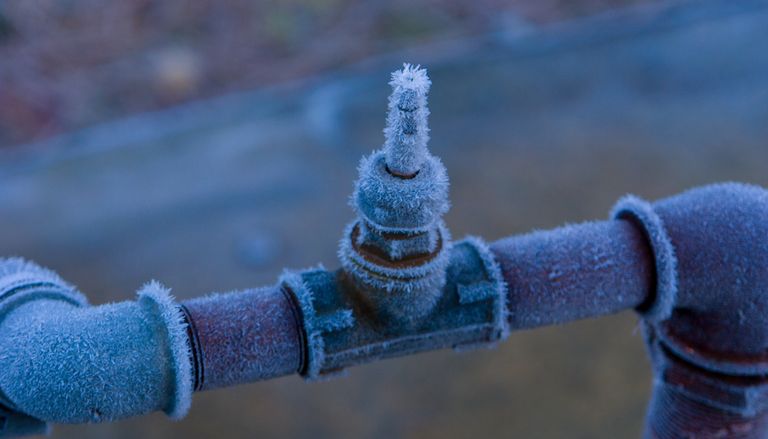What are your thoughts concerning 6 Ways to Prevent Frozen Pipes?

Winter can ruin your pipes, specifically by freezing pipelines. Below's just how to stop it from taking place and what to do if it does.
Intro
As temperatures drop, the risk of icy pipelines boosts, potentially leading to expensive fixings and water damages. Comprehending how to avoid frozen pipes is important for property owners in cold environments.
Understanding Frozen Pipes
What causes pipes to freeze?
Pipelines ice up when revealed to temperatures listed below 32 ° F (0 ° C) for prolonged durations. As water inside the pipes freezes, it increases, putting pressure on the pipeline wall surfaces and potentially triggering them to burst.
Dangers and problems
Frozen pipes can cause water supply interruptions, property damage, and costly repair services. Ruptured pipelines can flooding homes and create considerable architectural damages.
Indicators of Frozen Pipes
Identifying icy pipelines early can stop them from rupturing.
Exactly how to determine frozen pipes
Look for lowered water circulation from faucets, unusual smells or sounds from pipes, and visible frost on revealed pipes.
Prevention Tips
Shielding prone pipes
Cover pipes in insulation sleeves or use warmth tape to safeguard them from freezing temperature levels. Concentrate on pipes in unheated or outside areas of the home.
Heating techniques
Maintain indoor areas adequately heated, particularly locations with pipes. Open closet doors to enable cozy air to distribute around pipelines under sinks.
Securing Outside Pipes
Garden pipes and outdoor faucets
Detach and drain pipes yard hoses before winter months. Mount frost-proof spigots or cover outdoor faucets with protected caps.
What to Do If Your Pipes Freeze
Immediate actions to take
If you presume icy pipelines, maintain taps open up to relieve pressure as the ice thaws. Make use of a hairdryer or towels taken in warm water to thaw pipelines gradually.
Long-Term Solutions
Architectural changes
Think about rerouting pipes away from outside wall surfaces or unheated areas. Add added insulation to attic rooms, basements, and crawl spaces.
Updating insulation
Buy top notch insulation for pipes, attic rooms, and wall surfaces. Proper insulation aids preserve regular temperature levels and reduces the threat of frozen pipelines.
Conclusion
Protecting against frozen pipelines requires aggressive measures and quick feedbacks. By comprehending the causes, signs, and preventive measures, home owners can shield their pipes throughout winter.
Helpful Tips to Prevent Frozen Pipes this Winter
UNDERSTANDING THE BASICS: WHY PIPES FREEZE AND WHY IT’S A PROBLEM
Water freezing inside pipes is common during the winter months, but understanding why pipes freeze, and the potential problems it can cause is crucial in preventing such incidents. This section will delve into the basics of why pipes freeze and the associated problems that may arise.
THE SCIENCE BEHIND FROZEN PIPES
When water reaches freezing temperatures, it undergoes a physical transformation and solidifies into ice. This expansion of water as it freezes is the primary reason pipes can burst. As the water inside the pipe freezes, it expands, creating immense pressure on the walls. If the pressure becomes too great, the pipe can crack or rupture, leading to leaks and water damage.
FACTORS THAT CONTRIBUTE TO PIPE FREEZING
- Low Temperatures: Extremely cold weather, especially below freezing, increases the risk of pipes freezing.
- Uninsulated or Poorly Insulated Pipes: Pipes located in unheated areas, such as basements, crawl spaces, or attics, are more prone to freezing. Insufficient insulation or lack of insulation altogether exacerbates the problem.
- Exterior Wall Exposure: Pipes running along exterior walls are susceptible to freezing as they encounter colder temperatures outside.
- Lack of Heating or Temperature Regulation: Inadequate heating or inconsistent temperature control in your home can contribute to frozen pipes.
PROBLEMS CAUSED BY FROZEN PIPES
WHY CERTAIN PIPES ARE MORE PRONE TO FREEZING
- Pipe Bursting: As mentioned earlier, the expansion of water as it freezes can cause pipes to burst, resulting in significant water damage.
- Water Damage: When pipes burst, it can lead to flooding and water damage to your property, including walls, ceilings, flooring, and personal belongings.
- Structural Damage: Prolonged exposure to water from burst pipes can compromise the structural integrity of your home, leading to costly repairs.
- Mold and Mildew Growth: Excess moisture from water damage can create a favorable environment for mold and mildew growth, posing health risks to occupants.
- Disrupted Water Supply: Frozen pipes can also result in a complete or partial loss of water supply until the issue is resolved.
https://busybusy.com/blog/helpful-tips-to-prevent-frozen-pipes-this-winter/
- Location: Pipes located in unheated or poorly insulated areas, such as basements, crawl spaces, attics, or exterior walls, are at higher risk of freezing.
- Exterior Pipes: Outdoor pipes, such as those used for irrigation or exposed plumbing, are particularly vulnerable to freezing as they are directly exposed to the elements.
- Supply Lines: Pipes that carry water from the main water supply into your home, including the main water line, are critical to protect as freezing in these lines can affect your entire plumbing system.
- Underground Pipes: Pipes buried underground, such as those connected to sprinkler systems or outdoor faucets, can be susceptible to freezing if not properly insulated.

We had been made aware of that article on Winter Plumbing Precautions: Preventing Frozen Pipes from someone on a different blog. So long as you enjoyed reading our blog post if you please do not forget to share it. I value reading our article about Winter Plumbing Precautions: Preventing Frozen Pipes.
Click Here
Comments on “Protect Against Frozen Pipes in Winter: Expert Advice”